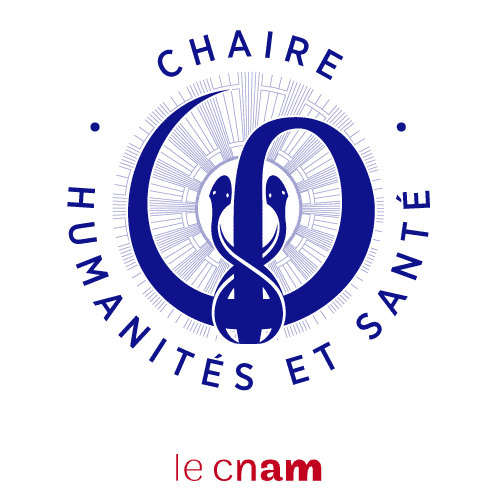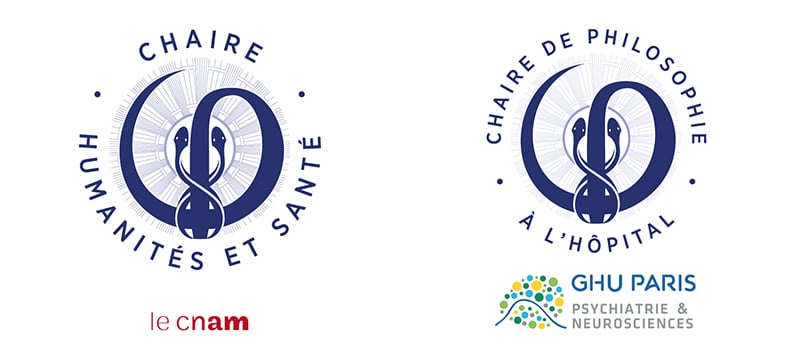
This chair is part of the CNAM’s reorganisation, and more specifically, it reinforces the EPN 12 Santé solidarité (Health Solidarity) program. It will contribute to the development of the educational offer focused on the societal, health and citizenship issues confronted by most health-related topics. It will pursue collaborations with the other chairs that constitute the EPN Santé Solidarité (Health Solidarity): Health Services Management, Accessibility, Social Work and Social Intervention, and Socially Responsible Economy, in addition to the Disability and Health Economics teams.
It also aims to supplement the activities of the other Chairs as well as contributing to the synergy between training, certification, and research. It emphasises expectations and needs in terms of training and research, specific to the humanities and social sciences as applied to the fields of medicine and health care, on behalf of health care professionals, doctors, patients and their families, as well as any citizen who is aware of the shared vulnerability that unites them with others–caregivers of course. These expectations require a complete redefinition of caregiver/patient relations, and more generally a more innovative approach to the nursing function, changes in the hospital, expectations regarding the new outpatient focus, all against a backdrop of an increasing scarcity of resources and demands for performance that require a critical eye, an alternative voice that can sound the alarm.
In this context, the Humanities and Medicine Chair is attempting to offer a new model (School of French Care) that reconciles research and humanities teaching with formal and continuing education of nurses and medico-social workers, as well as in hospital services. The aim is to demonstrate to what extent these new tools for critical thinking in the world of medicine are the conditions for a more comprehensive innovation concerning the health care systems and organisations, which alone makes possible the social appropriation of the highly technical world of health care, the hospital in particular. Since dehumanisation and the drastic cost control measures in hospitals endanger the effectiveness of care, it is essential to ensure that we pursue (or proactively initiate) theoretical programmes that rethink the caregiver-patient paradigm and concretely illustrate how the caregivers’ role must be shared in order to be effective. This is the Chair’s challenge: to offer new theoretical frameworks to reimagine the relationship to care, illness, life, and others. The others are in turn those who help us, save us and support us. And they can fall ill as well. In short, its aim is to make care the first framework for empowerment. The teaching and research activities are divided into three main areas:
- The existential approach to health care or how health care is the first framework for subjectivation, the emancipation of the subject.
- The institutional approach to health care, or how to counter the damaging effects of our organisations, particularly hospitals.
- The political approach to health care or how the hospital is at the core of the resilient city, or how public health and individual health are interconnected, or how the first test of the credibility of citizenship is still health.
The Chair follows the research orientations set out by the CNAM, in particular those of the LIRSA, and more specifically orientations 1 (Strategy, decision-making and management of organisations), 3 (Foresight, change management and innovation), 4 (Evolution and critical analysis of management tools). It also interfaces with the Education Research Centre, which encompasses a research axis connected to an innovative training and degree program for patients: the Patients’ University. A research group made up of patient researchers and researchers based at the NAC has been working on a Chronic Illness professional experience project since 2015 in order to ensure that the social, professional and civic inclusion of the chronically ill is supported; that the illness is not coupled with social exclusion when it is in fact an opportunity for learning; and that the skills patients acquire represent a valuable contribution to the community. These skills represent a new sphere of expertise for the medical field. Chronic illness presents an opportunity to reassess the theories of human development, as well as ways of living together and sharing social spaces, since more than 15 million people in France are affected by at least one chronic condition. To this end, the Chair will develop partnerships with regional CNAM institutes and university hospitals.
The Humanities and Medicine Chair will offer degree programs designed for health care professionals, caregivers, and any other professional involved in medicine and health care. More specifically, pursuant to Law n°2016-41 of 26 January 2016 concerning the modernization of the French health care system (Title III, § I of which explicitly refers to innovation in professional education and training), the Chair will also offer seminars on sensitive issues arising in the field, taking care to identify the theoretical and epistemic no-man’s lands faced by certain pathologies that require solid theoretical foundations to develop innovative organisational practices, as well and the issues to be taken into account, for example, in care pathways that need to be rethought both in terms of treatment and the needs of the population. As such, the Chair will leverage the existing partnership agreement between the CNAM and the Faculty of Medicine at Pierre and Marie Curie University and its research institutes to organize ad hoc seminars and symposia. The law on the modernisation of our health care system, the new cancer program and the HPST law of 2009 clearly demonstrate the health care system’s ambitions, but leave open the question of the scope of application that would make the legislator’s recommendations operational. Consequently, the Chair will organise interprofessional sessions to promote initiatives in the field and inscribe them within a paradigm of exchanges based on experiences by sharing the conceptual and theoretical tools that allow us to think differently about the theoretical concept of the contemporary patient.
In keeping with Law n°2015-1776 of 28 December 2015 on society’s response to aging, the Chair will seek to identify new forms of vulnerability and dependency, to define the independence of vulnerability, the needs of the elderly, as well as innovative solutions that will enable them to fully exercise their potential in society and in the economy. Defending the role of the humanities in medicine, as in democracy, is not simply a theoretical act but one that safeguards the sustainability of our health care system and our democracy. Citizenship is inextricably tied to an ability to use empathy to understand the difficulties of others (Nussbaum, 2010), and serves as the indispensable bedrock for the stability of democratic institutions. Through its teaching, seminars, training courses and public dialogue, the Chair intends to develop channels of access to knowledge and expertise, giving priority to teaching methods derived from the most up-to-date theories in the field of adult education (doctors, nursing staff, patient experts, carers), which is seen as both a field of practice and a field of research.
